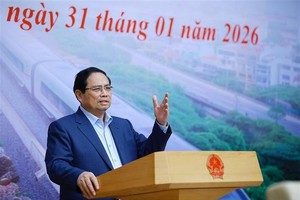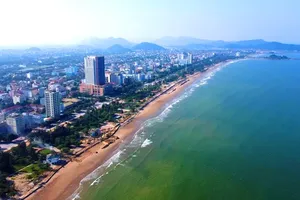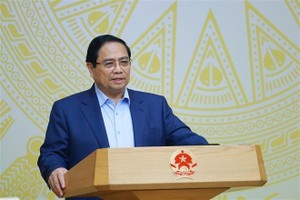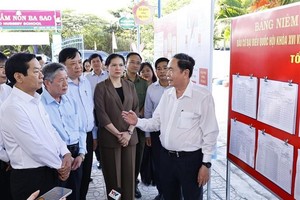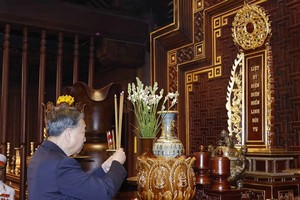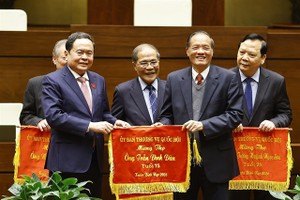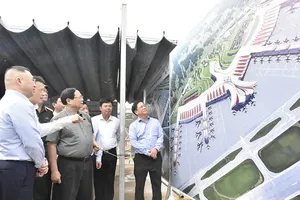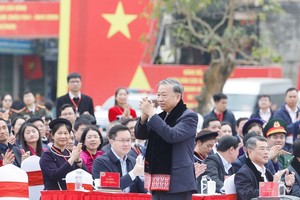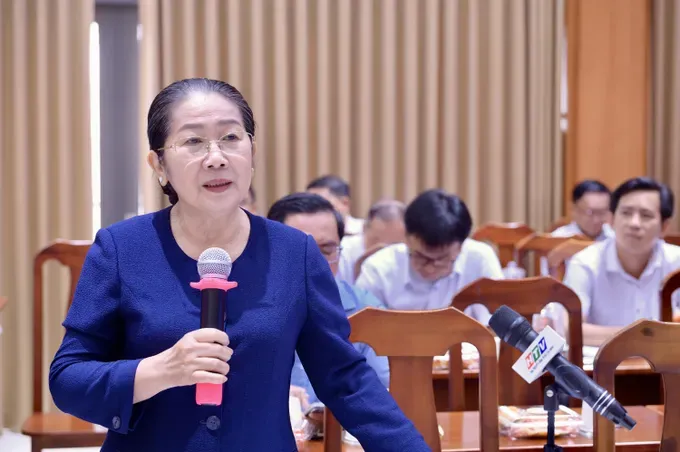
Clarifying two-tier local government model
At a meeting to gather opinions on amending the Constitution, organized by the Vietnam Fatherland Front – HCMC Branch on May 21, Chairwoman Ung Thi Xuan Huong of the HCMC Lawyers Association asserted that the draft Resolution amending the 2013 Constitution inadequately outlines the structure of a two-tiered local government.
She proposed revisions to unequivocally affirm this model, comprising provincial and grassroots tiers. Based on the unique characteristics of each locality, regulations could permit flexibility in establishing both a People’s Council and People’s Committee, or solely a People’s Committee.
Lawyer To Van Chung, a member of the Advisory Council on Democracy and Law (Vietnam Fatherland Front – HCMC Branch), further suggested that provinces be delineated into communes, towns, and equivalent administrative units (AUs), while centrally-governed cities should be divided into wards, communes, and equivalent AUs.
To enhance the clarity of the two-tiered (provincial and grassroots) local government regulation, lawyer Nguyen Van Hau, Vice Chairman of the HCMC Bar Association, recommended that the specific names for grassroots units (e.g., commune, ward, town, special zone) be determined by the Law on Organization of Local Government.
He urged comprehensive, detailed, feasible transitional provisions for AU reorganization. This includes clear handover processes for dissolving district AUs – covering records, finances, assets – and clarified legal succession, dispute resolution, and document validity to ensure a smooth transition minimizing citizen disruption.
In the meeting to collect proposals for the constitutional amendments, delegates urged guidance for district-level dossier transfers and publicizing new agencies. For AU changes, they seek favorable rules for adjusting documents. Lawyer Nguyen Van Hau proposed old documents stay valid, changes on request, and exploring free/low-cost mass reissuance of citizen papers.
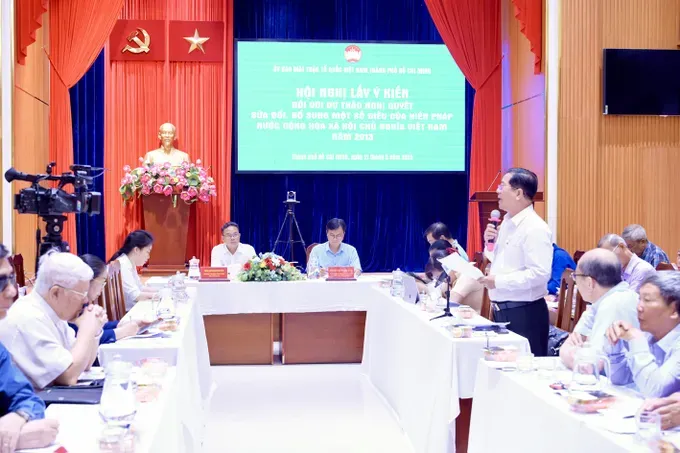
Ensuring people’s council delegates’ right of interpellation
Clause 2, Article 115 of the draft Amendment Resolution stipulates that Chief Justices of People’s Courts and Chief Prosecutors of People’s Procuracies would not be subject to interpellation by People’s Council delegates. Lawyer To Van Chung contended that denying this right would impede delegates’ ability to address voters’ inquiries and recommendations concerning the activities of these judicial bodies.
“Particularly in instances of miscarriages of justice or contentious procedural decisions by People’s Courts or People’s Procuracies that provoke public indignation, if People’s Council delegates cannot interpellate the respective Chief Justices and Chief Prosecutors, their oversight function will be incomplete, and they will fail to fully discharge their duties to the electorate”, Lawyer Chung elaborated.
Echoing this sentiment, Chairwoman Ung Thi Xuan Huong argued that the right to question these judicial heads is a vital mechanism for controlling state power and advocated for retaining the existing provision that grants this right to People’s Council delegates.
Concerning personnel matters, some opinions urged cautious consideration of regulations allowing the appointment of individuals who are not People’s Council delegates to leadership positions within the People’s Council.
Deputy Head Le Minh Duc of the HCMC People’s Council’s Legal Affairs Committee suggested that Clause 3, Article 2 of the draft Resolution – addressing the consolidation of local government agency structures post-AU reorganization – should not be incorporated into constitutional amendments.
Furthermore, he deemed the provision allowing the Standing Committee of the provincial People’s Council to appoint Chairpersons and Vice Chairpersons of commune-level People’s Committees inconsistent with existing regulations on local government organization from provincial to commune levels. He proposed instead that the Chairperson of the provincial People’s Committee should make these new appointments.
Delegates also commended the draft Resolution for affirming the central role of the Vietnam Fatherland Front and socio-political organizations. However, many suggested reviewing the terminology describing the relationship between these organizations and the Front.
Specifically, former Deputy Secretary Vo Thi Dung of the HCMC Party Committee proposed amending the wording from socio-political organizations being “subordinate to” the Vietnam Fatherland Front to them being “member organizations”. This change, she argued, would ensure streamlining consistency with general trends without diminishing the efficacy and role of these socio-political entities.
The HCMC Department of Public Security announced that it is mobilizing over 4.9 million city dwellers holding level 2 e-identification accounts to contribute feedback on the draft constitutional amendments via the VNeID application. Task forces are conducting a meticulous door-to-door outreach campaign to guide citizens in submitting their opinions by the May-30 deadline.

